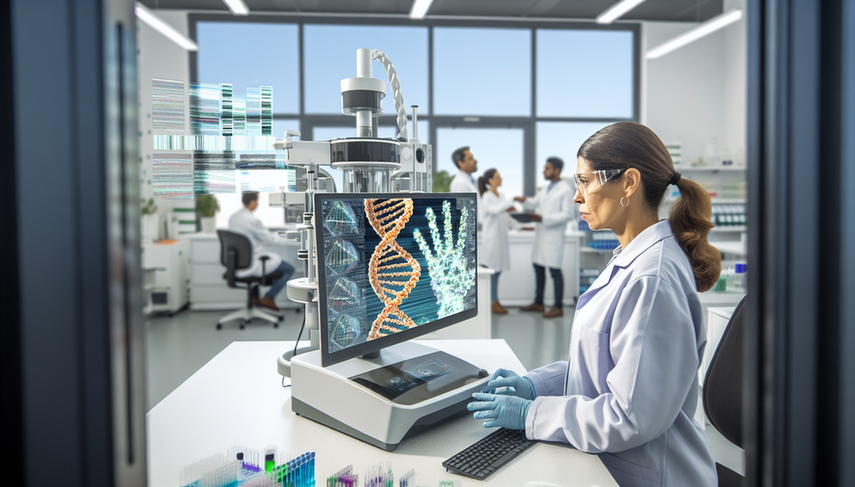AI in Genetic Analysis: From Massive Sequencing to Clinical Interpretation for the Doctor of the Future

The massive sequencing revolution has transformed the field of genetic analysis, enabling the acquisition of vast amounts of genomic big data. However, the true challenge lies in the clinical interpretation of this data, a process that has been facilitated by the integration of artificial intelligence (AI). AI in genomics is emerging as an essential tool for converting genomic big data into clinically relevant information, allowing the doctors of the future to make more informed and personalized decisions.
From Massive Sequencing to Clinical Interpretation
The implementation of next-generation sequencing (NGS) technologies has enabled the rapid identification of genetic variants in patients, but the interpretation of these variants remains a significant challenge. AI has proven to be a powerful ally in this context, facilitating the identification of pathogenic variants and their correlation with clinical phenotypes. For example, tools like DRAGEN and cloud-based medical platforms have improved the accuracy and speed of genomic data interpretation in oncology.
Moreover, AI is revolutionizing diagnostics in hematology, where deep learning algorithms are being used to classify subtypes of diseases and enhance diagnostic accuracy. A recent study highlights how AI can identify patterns and anomalies in electronic health records, thereby improving longitudinal phenotyping and enabling personalized interventions.
In the realm of precision oncology, AI is being utilized to integrate genomic analyses into cancer care, addressing the challenges of scalability and dimensionality of data. Tools like NLP and deep learning are transforming big data into actionable clinical knowledge, which is fundamental for precision medicine.
Conclusions
The integration of AI in genetic analysis is not only enhancing the interpretation of genomic data but also redefining the role of the doctor of the future. The ability of AI to process and analyze large volumes of genomic data is enabling physicians to offer more personalized and effective treatments. However, it is crucial to address the challenges associated with the adoption of AI, such as algorithmic transparency and reproducibility, to ensure a positive impact on healthcare.
In conclusion, AI in genomics is paving the way for a new era of personalized medicine, where massive sequencing and genetic analysis are seamlessly integrated into daily clinical practice.
Referencias
- [1] Cutting-Edge AI Technologies Meet Precision Medicine to Improve Cancer Care
- [2] How artificial intelligence might disrupt diagnostics in hematology in the near future
- [3] Translating cancer genomics into precision medicine with artificial intelligence: applications, challenges and future perspectives
Created 20/1/2025
